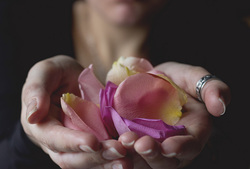Yet today, I want to focus on another question -- and that is, are the questions in the novel actually answered?
Some may discern and interpret dialogue to arrive at an answer; they dichotomize perspectives (the American visitor versus the Bengali national) because perhaps that is the only way they can digest it. But this isn't what I recommend. Fiction is the one place we can create clear lines between villain and hero, protagonist and antagonist; yet I've done away with that. I've taken attitudes I've observed in my culture and written them into Rodney, not to vilify but to shed light, then allow the reader to decide.
I have seen friends teach abroad and return home crowing about the people who loved them, proposed marriage to them, fawned over their wealth and whiteness; I've felt disgust and dismay at the arrogance that must go into descending on a place with the blunt intention of changing it without knowing it or, more distastefully, the belief they will improve it with their mere presence. Yet, while recalling these old conversations turns my stomach, and while Sajib would argue this is just another form of colonization, this is not always a cut-and-dry problem. Despite the inherent error in the "let the glory of my presence improve your life" attitude, there are certainly instances where meaningful connections are made when one human helps another, where both lives are forever altered in a positive way. There are certainly nuances described in this novel that are not ubiquitous and experiences, differently executed, that result in better outcomes. There are organizations doing things right, too. There are well-meaning people and well-run programs, too. There are people who do good, well-informed work with love and free of that arrogance I described, too. There are various sides of the debate, too.
The presentation of this tension is supposed to confuse and conflict. We are supposed to question the sincerity of the dynamic between Rodney and Sariyah, Rodney and Sajib, Rodney and his students. And we are supposed to arrive at - maybe not the answer to but - a queasy yet more complete understanding of "why."




 RSS Feed
RSS Feed